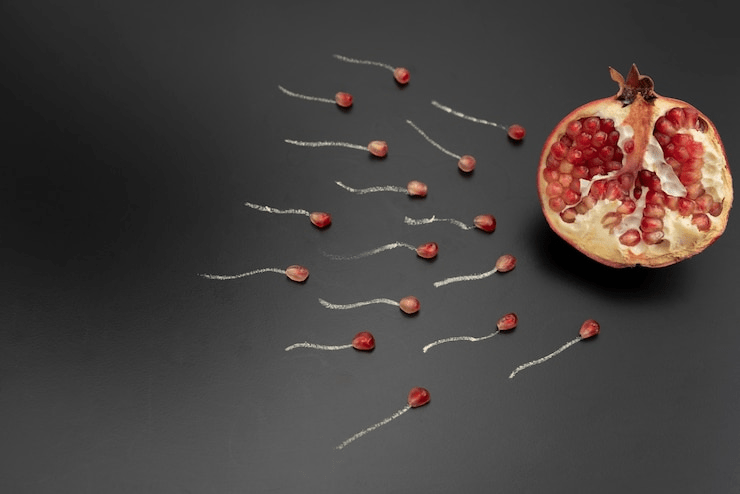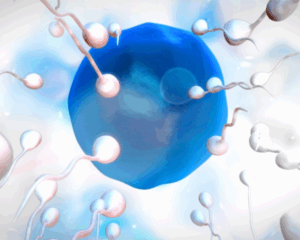
Prolistem for Non-Obstructive Azoospermia: A Comprehensive Guide
Prolistem for non obstructive azoospermia, Non-obstructive azoospermia (NOA)

Azoospermia, the complete absence of sperm in semen, affects about 1% of the male population and is a leading cause of male infertility. While conventional treatments like surgery or hormone therapy exist, many men are turning to Azoospermia natural treatment options for a safer, more holistic path to restoring fertility.
In this blog, we’ll explore the causes of azoospermia, the differences between obstructive and non-obstructive types, and dive deep into proven natural treatments for azoospermia—including diet, lifestyle changes, herbal remedies, and more.
Azoospermia is a condition where there are no sperm cells in the ejaculate. It is categorized into two main types:
This occurs when there is a physical blockage in the male reproductive tract that prevents sperm from being present in semen. Common causes include:
Congenital absence of the vas deferens (as seen in some men with cystic fibrosis)
Prior vasectomy or unsuccessful reversal
Infections or scar tissue
This results from impaired sperm production in the testicles, often due to:
Genetic disorders
Hormonal imbalances
Testicular failure
Varicocele (enlarged veins in the scrotum)
While medical and surgical interventions are often used, natural treatments for azoospermia can complement or, in some cases, replace conventional therapies, especially for non-obstructive cases.
Natural treatment options are gaining popularity due to:
Minimal side effects
Lower cost compared to IVF or surgery
Improvement in overall health and well-being
Addressing root causes, not just symptoms
Let’s explore evidence-backed, natural remedies for azoospermia.
A balanced diet rich in antioxidants, vitamins, and minerals can significantly improve sperm production. Here are key nutrients that help:
Zinc plays a vital role in testosterone production and sperm development.
Sources: Pumpkin seeds, lentils, spinach, cashews, chickpeas
Protects sperm from oxidative stress and improves motility.
Sources: Almonds, sunflower seeds, spinach, avocado
Helps reduce sperm DNA damage and boosts sperm count.
Sources: Citrus fruits, strawberries, bell peppers
Supports healthy sperm production.
Sources: Leafy greens, beans, whole grains
Improve sperm morphology and motility.
Sources: Flaxseeds, walnuts, chia seeds, fatty fish
Pro Tip: Avoid processed foods, refined sugars, and trans fats—they can lower testosterone levels and sperm quality.
Several herbs have shown promise in boosting male fertility naturally:
Improves testosterone levels and sperm quality. A 2013 study showed significant improvement in sperm concentration and motility in infertile men.
An ancient Ayurvedic supplement that enhances sperm count and overall vitality.
Native to Peru, maca is known to improve libido, sperm volume, and motility.
Stimulates the production of luteinizing hormone (LH), which supports testosterone production.
Important: Always consult a healthcare provider before starting herbal supplements.
Your daily habits have a massive impact on sperm health. Here are lifestyle changes that can make a real difference:
Prolonged exposure to heat (e.g., hot tubs, saunas, laptops on laps) can harm sperm production. Keep your testes cool.
Moderate exercise boosts testosterone and reduces stress. Avoid overtraining, which can have the opposite effect.
7–8 hours of quality sleep helps regulate hormone production.
Cigarettes contain toxins that damage sperm DNA and reduce count.
Excessive alcohol lowers testosterone and sperm quality.
High stress = high cortisol = low testosterone. Incorporate yoga, meditation, or deep-breathing exercises.
Environmental toxins and heavy metals can lead to testicular damage and azoospermia. Consider these natural detox steps:
Use a water filter to avoid chlorine and heavy metals.
Avoid plastic containers and use glass or stainless steel.
Eat organic produce to reduce pesticide exposure.
Consider milk thistle or chlorella as natural liver detoxifiers.
Studies have shown that acupuncture can help increase sperm count and motility by:
Improving blood flow to the testes
Balancing hormonal levels
Reducing stress
TCM often uses custom herbal blends tailored to the individual’s constitution.
Hormonal imbalance is a key cause of non-obstructive azoospermia. You can naturally balance hormones by:
Supporting adrenal health with adaptogens like Rhodiola and Ashwagandha
Avoiding endocrine-disrupting chemicals (like BPA)
Consuming healthy fats (coconut oil, avocado, nuts)
Intermittent fasting (consult your doctor)
Besides vitamins and minerals mentioned above, these supplements are often recommended:
Coenzyme Q10 (CoQ10) – Improves sperm motility
L-Carnitine – Supports energy metabolism in sperm cells
Selenium – A powerful antioxidant beneficial for testicular health
D-Aspartic Acid – Shown to increase testosterone and sperm count
Dosage Note: Always check with a healthcare provider before starting new supplements.
While home remedies alone may not cure azoospermia, they can support your natural healing journey:
Fenugreek seeds: Soak overnight and drink the water in the morning.
Garlic with honey: Natural testosterone booster.
Amla juice: High in Vitamin C; supports detoxification.
While each case is unique, some men have seen improvements through natural approaches:
A 35-year-old with non-obstructive azoospermia improved sperm count after 6 months on a plant-based diet, maca, and acupuncture.
A man with a history of varicocele saw improvement after following an Ayurvedic treatment plan alongside detoxification.
While Azoospermia natural treatment offers hope, not every case can be treated naturally. Consult a urologist or fertility specialist if:
You’ve been trying to conceive for over a year
There is a known blockage or surgery is needed
Genetic factors may be involved
Hormonal levels are extremely low
Natural therapies can still complement medical treatments and improve success rates with assisted reproductive technologies (ART) like TESE or ICSI.
A diagnosis of azoospermia can be emotionally overwhelming, but natural treatments offer hope. By making lifestyle changes, improving your diet, taking the right supplements, and using time-tested herbal remedies, you may improve your fertility outcomes.
Remember: Consistency, patience, and professional guidance are key to success in treating azoospermia naturally.

Prolistem for non obstructive azoospermia, Non-obstructive azoospermia (NOA)

Introduction Male infertility, especially caused by azoospermia, affects

We are proud to have participated in the

Introduction: A New Hope in Male Infertility Treatment
PROLISTEM® is a Patented Formula
Copyright © 2025 Prolistem®